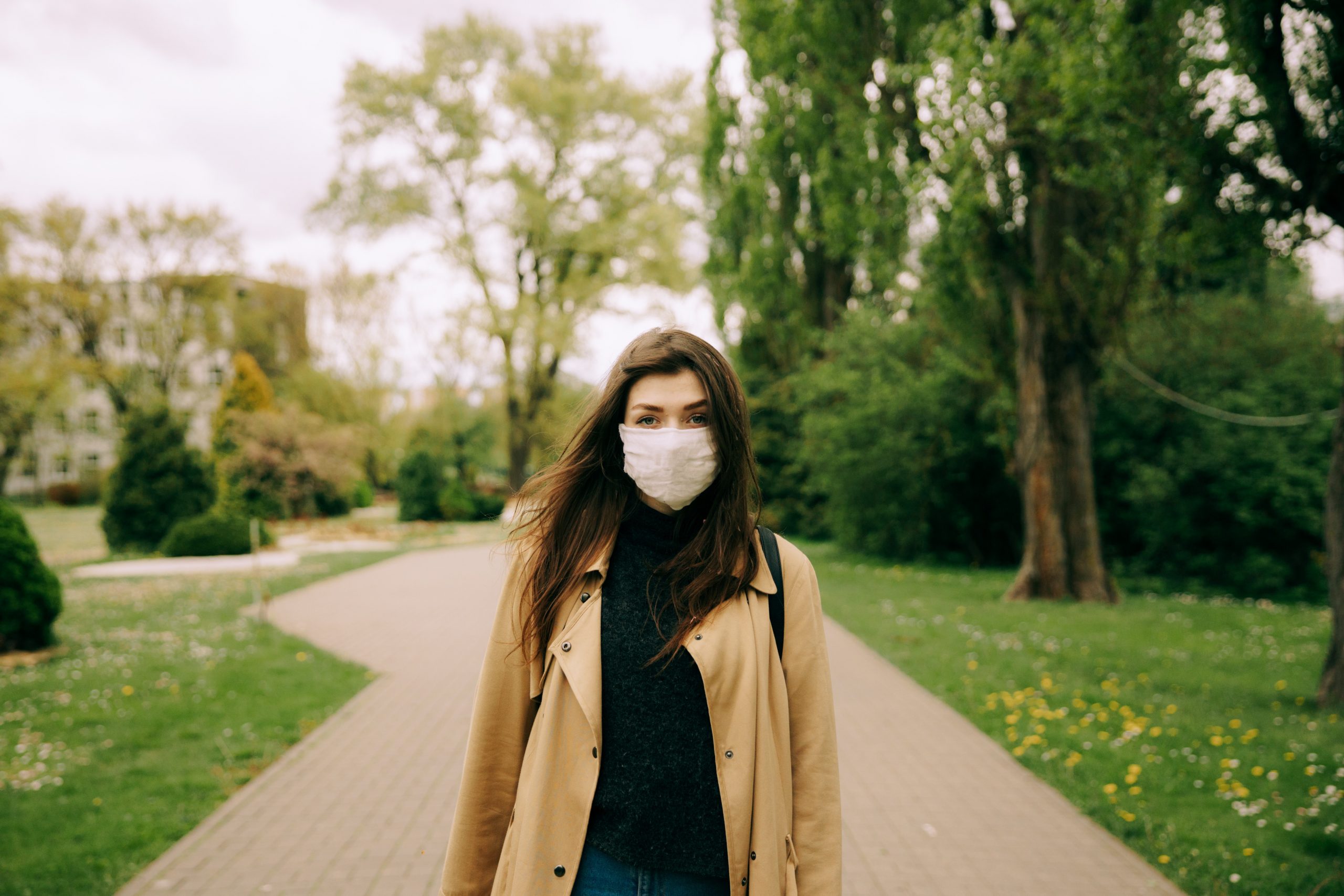 Written by Ella, Teen Volunteer
Written by Ella, Teen Volunteer
Halifax Public Libraries' Teen Blog is written by and for teens. Discover more posts here.
It’s hard to define the word “pandemic”, but one thing that scientists and researchers agree on is that an epidemic affects a huge number of people in a lot of different regions of the world.
Nobody imagined this would happen without warning.
But as of October 2020, the world is shaking because of the virus that began in late 2019 in Wuhan, China. It’s named COVID-19, opens a new window, a shortened term for “Coronavirus Disease of 2019”.
This virus has spread worldwide since then, and the infection rate is still growing.
COVID-19 isn't the first pandemic to happen, but it's the first that I'm experiencing first-hand.
My pandemic life
As a teenager, I've had a hard time adapting and I've struggled to find ways to accommodate my life to the "pandemic lifestyle." We have to wear masks in public buildings and we have to be physically distant from each other to prevent the spread of the virus.
At first, a lot of teens (like me) found these measures really hard since it meant staying home and not seeing our friends and missing our activities. But, with help from adults, we understood the importance of taking responsibility for protecting ourselves and others, so many of us are encouraging others to do the same.
Learning from home was really hard. Since the school closures in March, online platforms and online communities have become crucial. In the Spring, the sudden change to online learning was especially hard for some families—access to internet, devices, or resources prevented students from getting a stable education.
Also, many supports such as occupational, psychological, or speech therapy weren't accessible for those that needed it.
Sports and volunteering activities were cancelled, leaving potential impacts on our further education and professional futures.
Although COVID-19 has impacted my life in a lot of ways, I've tried to be positive and find ways to not let go of my plans. I've watched lot of online videos that helped me understand concepts better for school. I found virtual volunteering opportunities like this Creative Doers opportunity with the Library. I try to remember that there are always solutions for problems and that we should strive to make the best of the current situation.
To stay informed about COVID-19 here in Nova Scotia, the best information is available on the government's website, opens a new window.
While it's impossible to predict the outcome of COVID-19, we can learn from the past while we trust science to find a vaccine.
Other pandemics
For context of how long I could expect this could last, I thought it would be interesting to look at a few recent pandemics in the 21st century: SARS, H1N1, and Ebola.
SARS
SARS, opens a new window is a viral respiratory disease caused by a coronavirus called SARS-CoV, from the same family of viruses that causes the common cold. It stands for 'Severe Acute Respiratory Syndrome'. It presented like a flu that progressed to respiratory distress. The pandemic lasted two years.
It was reported for the first time in 2002 in Asia, and in just a few months, it spread to more than 26 countries in North and South America, Europe, and Asia.
According to the World Health Organization, more than 8000 people worldwide were infected with SARS, of which 774 were reported to have died.
Most cases of community transmission occurred in poor health care environments, because of the lack of infection control precautions.
No new cases were reported after 2004 after health measures eventually controlled the virus.
H1N1 (Swine Flu)
H1N1, opens a new window is caused by a specific strain of flu virus - a mixture of viruses from humans, pigs, and birds.
It originated in Mexico in the spring of 2009, the infection spread worldwide. The pandemic roughly a year and a half.
It mostly affected younger age groups: children, young and middle-aged adults.
According to the US Centre for Disease and Control Prevention, it's around 150,000 to 575,000 people died worldwide.
In August 2010, the pandemic was declared over.
Ebola Virus
Ebola, opens a new window is caused by an infection of diverse viruses of the genus Ebolavirus. The most recent Ebola pandemic lasted about three years.
It was first introduced to humans through fruit bats in the Congo, and highly contagious transmission happened through person-to-person contact with someone with the virus. The average fatality rate was around 50%.
Ebola infected more than 28,600 people and killed 11,325 people worldwide.
The 2014 outbreak ended in 2016 thanks to international support with drug therapies and immunization.
The future
We don’t know what the future will look like after COVID-19 or how long this pandemic will last. But, one thing is sure: we will adjust to the new lifestyle and hang in there until we overcome this virus—just like we did during other pandemics.
Learn more
Interested in learning more? Check out the websites I used to source my information:
SARS - World Health Organization, opens a new window
H1N1 - Mayo Clinic, opens a new window
Ebola - CDC, opens a new window
Ebola - World Health Organization , opens a new window
COVID-19 - World Health Organization, opens a new window
About the writer
My name is Ella (Sunghyun) Kang and I’m 16 years old. I’m a teenager who loves art, reading, and Halifax.


Add a comment to: Pandemic Reflections From a Teen